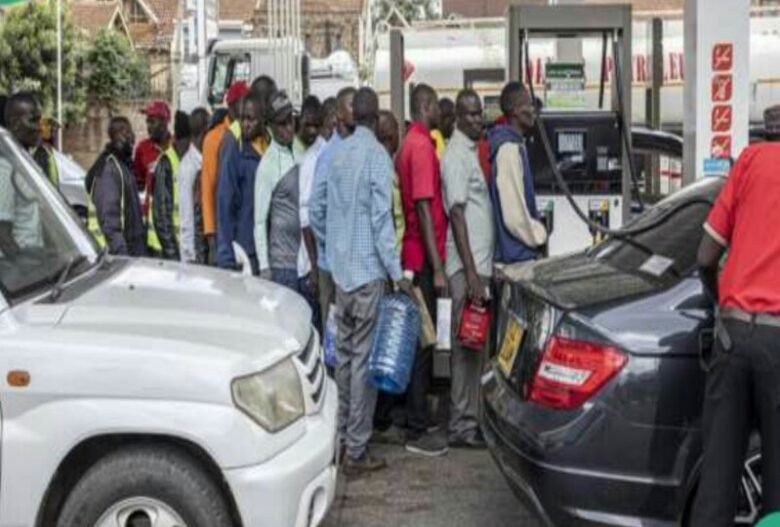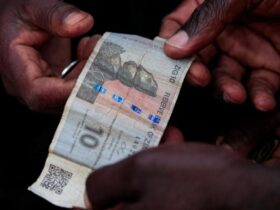The new fresh scarcity has compounded the untold hardship on Nigerians as the price of petrol per litre increased to N900 per litre in the black market.
This comes despite the Nigerian National Petroleum Company Limited’s (NNPC Ltd) assurance of product availability.
NNPCL told Nigerians it had resolved the logistic issues causing fuel queues across the country.
A statement signed by NNPC Oplufemi Soneye, NNPCL’s chief corporate communications officer, on Thursday, April 25, 2024.
The statement partly reads; “The Nigerian National Petroleum Company Limited (NNPC Ltd) wishes to clarify that the tightness in the supply of Premium Motor Spirit currently being experienced in some areas across the country is due to logistics issues, which have been resolved. It also wishes to reiterate that the prices of petroleum products are not changing, avoid panic buying as there is a sufficiency of products in the country”.
However, the situation has not improved since the NNPC message to Nigerians. Long queues of vehicles continue to be seen at filling stations across the country.
Checks revealed that many motorists and other users were compelled by circumstances to patronise black market operators who openly sold the product along Ikorodu Road, Isolo and other locations in jerry cans at between N900 and N1,000 per litre.
Further checks indicated that transporters increased fares by 100 per cent to cover the high cost of petrol.
For instance, commuters paid N2,000 from Mile 12 to Mile 2, a distance that used to cost them N1,000, while others paid N1,000 from CMS to Mile 2, which previously cost about N500.
The fuel situation in the ancient city of Kano worsened on Sunday as most of the petroleum stations were shut. Long queues were observed in the few filling stations still dispensing the product in the state capital.
It was observed that independent marketers and some major marketers who were seen selling fuel sold it as high as between N850 and N900 per litre.
A motorist, Mustapha Bello, speaking on the development said: “The last fuel in my car was bought at N680 per litre some weeks back only for me to go back to buy another fuel at N850 per litre today (yesterday.”
In Kaduna North Local Government Area, a lengthy queue of motorists formed at the only operational filling station along Ali Akilu Road. Customers reported that petrol was being sold at an inflated price of N1,200 per litre, a significant increase from the previous price of N900.
One motorist expressed frustration, stating that many people resorted to purchasing fuel from the black market due to the long queues at filling stations. At the black market, they reportedly paid between N6,000 and N6,500 for four litres of fuel.
In Osun State, while some filling stations were open for business, yesterday, many of them that did not have petrol were closed, thus encouraging many motorists to patronise black market operators at higher costs of between N900 and N1,200 per litre.
They also passed the burden to commuters, who were stranded at motor parks because transporters increased fares by more than 100 percent.
Meanwhile, the Independent Petroleum Marketers Association of Nigeria (IPMAN), has said that the petrol scarcity currently spreading to more states across the country will take at least two weeks to normalise.
Ukadike also blamed the acute shortage in supply on importation bottlenecks and the slow pace of marketers’ licence renewal by the Nigerian Midstream and Downstream Petroleum Regulatory Authority, NMDPRA.
He disclosed that only 1,050 marketers out of 15,000 have had their licences renewed by NMDPRA.
He said, “The situation is that there is no product. Once there is a lack of supply or inadequate supply, what you will see is scarcity and queues will emerge at filling stations.
“On the part of NNPCL, which is the sole supplier of petroleum products in Nigeria, they have attributed the challenge to logistics and vessel problems.
“Once there is a breach in the international supply chain, it will have an impact on domestic supply because we depend on imports. I also have it on good authority that most of the refineries in Europe are undergoing turnaround maintenance, so sourcing petroleum products has become a bit difficult.
“NNPC Group CEO has assured us that there will be improvement in the supply chain because their vessels are arriving. Once that is done, normalcy will return. This is because once the 30-day supply sufficiency is disrupted, it takes two to three months to restore it.
“We expect that by next week or so, NNPC should be able to restore supply and with another week, normalcy should return.”
YOU MAY ALSO READ: Elon Musk leaves Beijing after Tesla secures key data security clearance in China









Got a Question?
Find us on Socials or Contact us and we’ll get back to you as soon as possible.